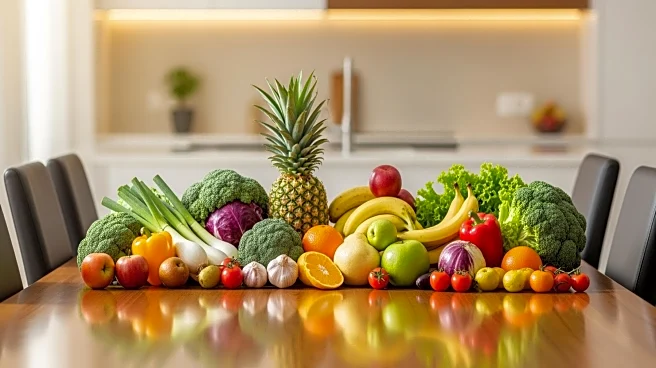What's Happening?
U.S. Trade Representative Jamieson Greer announced that President Trump is prepared to implement tariff exemptions on certain food products not produced domestically. This decision follows recent trade
agreements with four Latin American countries, which have paved the way for reducing tariffs on items such as coffee, cocoa, and bananas. Greer emphasized that these products fall into 'micro-areas' of trade where tariffs are deemed unnecessary due to the lack of domestic production. The move is part of a broader strategy to adjust trade policies in light of new international agreements.
Why It's Important?
The decision to exempt tariffs on specific food products could have significant implications for U.S. consumers and businesses. By reducing costs on imported goods like coffee and cocoa, the exemptions may lead to lower prices for consumers and increased competitiveness for businesses relying on these imports. Additionally, the policy shift reflects a strategic approach to international trade, potentially strengthening economic ties with Latin American countries. This could foster more robust trade relationships and open new markets for U.S. exports, benefiting various sectors of the economy.
What's Next?
As the tariff exemptions are implemented, stakeholders such as importers and retailers will likely monitor the impact on pricing and supply chains. The U.S. government may continue to negotiate similar agreements with other countries, aiming to further optimize trade policies. Observers will be watching for any reactions from domestic producers who might be affected by increased competition from imported goods. The administration's approach to trade policy could also influence future negotiations and economic strategies.










